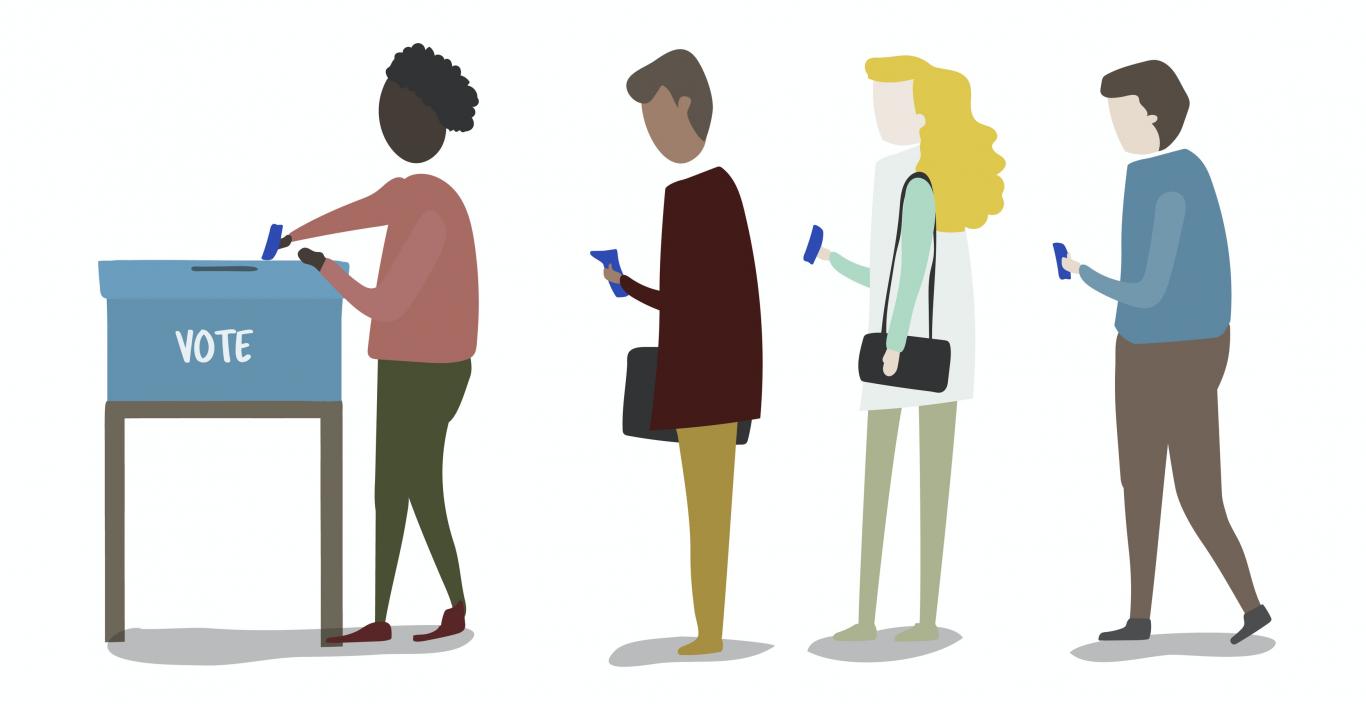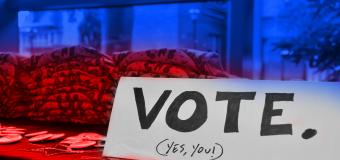The outcome of the 2020 U.S. presidential election was still unknown at the time of Wednesday evening’s moderated “community conversation” on the topic, but one thing was certain: the presidency would be in the hands of a white, corporation-endorsed man likely to do little to change the culture and power structure that have oppressed American Black, indigenous and people of color.
A post-Election Day panel discussion of faculty members, moderated by Urban Scholars Initiative Interim Executive Director Bwann Gwann, offered few hints of optimism in the wake of a particularly contentious (and seemingly eternal) campaign season. Faculty members Rakhshanda Saleem, Kelvin Ramirez, Nafisa Tanjeem and Michael Illuzzi spoke largely with one voice about the systemic racism, class-based oppression and other power inequities exhibited nationally and locally, including on university campuses like Lesley’s.
The discussion, via Zoom, was part of the LesleyVotes 2020 initiative and about 40 members of the Lesley community attended. At the time, both presidential candidates had earned more than 200 electoral votes, though neither had yet reached the necessary 270-vote majority, with a number of states’ ballots incompletely tallied.
“It’s really important to think about what’s happening and what happened beyond the election,” said Tanjeem, assistant professor of Global Studies as well as Gender, Race and Sexuality Studies. The populism exemplified by President Donald Trump, though by no means restricted to him, she added, “indicates a crisis of neoliberal capitalism.”
“A lot of times, we are motivated to choose the lesser of two evils,” she said, but we need to question the implications of the election results, regardless of whether Trump or former Vice President Joe Biden wins, and how we commit to organizing and fighting for change.
“A corporate-led globalization continues to inflict pain on an American working class” struggling against automation and other business decisions “undermining labor rights and job security,” especially for communities on the margin, said Tanjeem.
At the university level, liberal arts education is being sacrificed on the altar of business education, and the focus on “marketable skills,” rather than on the critical thinking that helps students “decipher the rhetoric” of political campaigns and promises, she added.
Panelists agreed that politicians aren’t the only sources of harm. Rather, the corporate-owned, status quo-preserving media and social media platforms undermine political consciousness in the quest for profits.
“This election in this current state is a sobering reminder to me of how racist this nation is,” said Ramirez, assistant professor of Expressive Therapies and Global Interdisciplinary Studies. “Racism is the backbone of America. It’s just easier to digest when we have a Black president like Obama.”
Saleem, associate professor of Counseling and Psychology, said the 2020 election hasn’t told us anything we don’t already know about the state of the nation.
“Even as we’re talking about elections, we’re legitimizing the settler/colonial” system that governs America and much of the world, Saleem said. She added that systems of oppression here and abroad have hardly arisen over the past four years: the malevolence is bipartisan.
“Are we talking about droning and bomb attacking global brown and indigenous communities?” she asked, rhetorically. “Because that has been done by both parties.
“We actually don’t have a democracy, and we need to stop calling it that. We’ve been a plutocracy, an autocracy … We’re no different than the rest of the world: we are controlled by giant corporations.”
Illuzzi, associate professor of Political Science, was slightly more encouraged than his colleagues by the election, especially with regard to the early-voting-fueled turnout, saying that he sees important differences between Biden and Trump, whose populism he characterized as “right-wing authoritarianism.”
Nevertheless, he found a lot to be troubled by, too, in the scant repudiation of Trump’s anti-immigrant views and his seeming coziness with white supremacist malefactors.
“Donald Trump got nearly 50 percent of the vote. What does that mean?” Illuzzi said. “To me, it undermines my faith … in us as Americans. I think it says something really bad about the state of us. I think we need to look at ourselves.”
While no panelists discouraged voting, they agreed the most important work comes outside of electoral politics, through direct action and advocacy, as when Lesley students and other collegians organized to protect health benefits to food-service workers furloughed during the early days of the COVID-19 pandemic.
“There is no way to feel complacent if Biden wins,” Tanjeem said. “If Biden wins, the struggle continues.”




